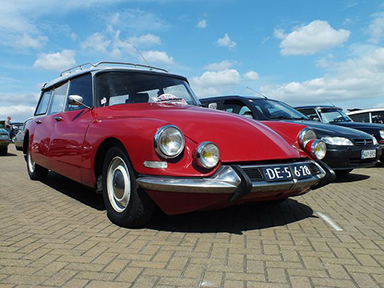The great development of the auto industry at the end of the nineteenth century had a great impact on increasing interest in motors and motor races, which were in its beginning limited to small groups of car enthusiasts and owners on a small scale. However, it continued to develop into service organizations that provided its members with many Emergency roads services, then it developed to assist in planning group trips, making reservations, car insurance, and related services until it evolved to sponsor and organize many motor racings locally and globally.
The first car club was Automobile Club of France founded in 1895 in Paris, but similar groups soon appeared in Britain and Belgium, and mutual associations between French and British clubs were established by 1898.
By 1900 many national clubs were formed in Germany, Austria and Switzerland. The American Automobile Association (AAA) was founded in 1902 by merging nine previous automobile clubs. By the last quarter of the twentieth century, there were more than 100 national auto clubs and associations all over the world, which have mutual agreements.
With the spread of these clubs, they have strengthened and branched out their activities to build highways, enhance safety measures, as well as pushing for legislation and programs for the benefit of motorists.
For example, the Automobile Club of Switzerland has developed a triple model that excludes motorists from paying customs duties on their cars when crossing national borders, and the British Royal Automobile Club (RAC) and the Automobile Association (AA) have taken a leading role in patrolling nationally, first by bike and then by motorcycle. Moreover, the first roadside phone box to assist drivers was installed by the British Royal Automobile Club in 1919.
After World War II, insurance companies, oil companies, and local retailers formed many auto clubs. Furthermore, many specialized clubs were formed for enthusiasts of some specific types of cars that are still growing and spread to this day.
